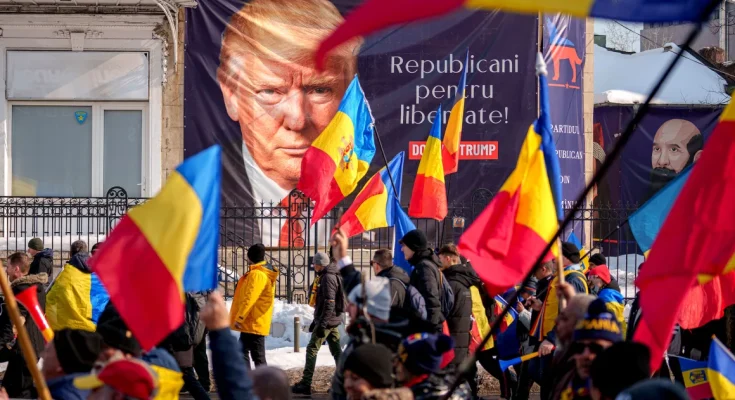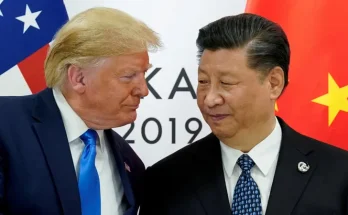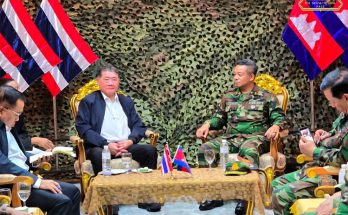Romania, a nation nestled on Europe’s eastern edge, has unexpectedly found itself under the intense spotlight of the new U.S. administration—surprising, given the pressing global priorities of ending the Ukraine war, reshaping Middle Eastern diplomacy, and expanding American influence.
Typically accustomed to operating quietly in the background of international affairs, many Romanians are stunned by the sudden and vigorous interest from the Trump administration in their domestic politics.
“This level of scrutiny is unprecedented,” remarked Oana Popescu-Zamfir, director of the Global Focus Center, a Bucharest-based think tank. She noted that never in Romania’s post-Soviet era have its internal affairs attracted such international attention.
The focal points of this scrutiny are Calin Georgescu, an ultranationalist politician with Kremlin-friendly leanings, whose presidential aspirations were abruptly halted last year, and Andrew Tate, the controversial “manosphere” influencer facing allegations of rape and human trafficking by Romanian authorities—charges he firmly denies.
Though Georgescu and Tate seem worlds apart, both have garnered support from conservative circles in the United States by portraying themselves as victims of “witch hunts” orchestrated by liberal, corrupt institutions—a narrative echoing the experiences of former President Donald Trump.
To the online right, Georgescu embodies a maverick political figure unfairly denied victory by baseless claims of foreign interference, while Tate symbolizes a prominent influencer targeted by exaggerated accusations designed to silence him. Together, their situations have come to exemplify what American politician J.D. Vance described as Europe’s internal “threat from within.”
The two men have actively leveraged the narrative popularized by Trump himself. Following Romania’s easing of Tate’s travel restrictions—reportedly influenced by U.S. diplomatic pressure—the influencer swiftly dismissed the allegations against him as fabricated, equating his ordeal with Trump’s legal battles.
“Remember what they did to Trump. Remember the accusations and the false convictions… he was innocent,” Tate declared in a Florida-recorded video, aligning his experience with historical figures who’ve endured “lawfare” and defamation, including Trump, Nelson Mandela, and Malcolm X.
Similarly, Georgescu, a figure previously obscure outside Romania, has readily compared criticism of his thwarted presidential bid to the controversies surrounding Trump’s elections, reinforcing the appeal of their shared narrative within conservative circles in America.
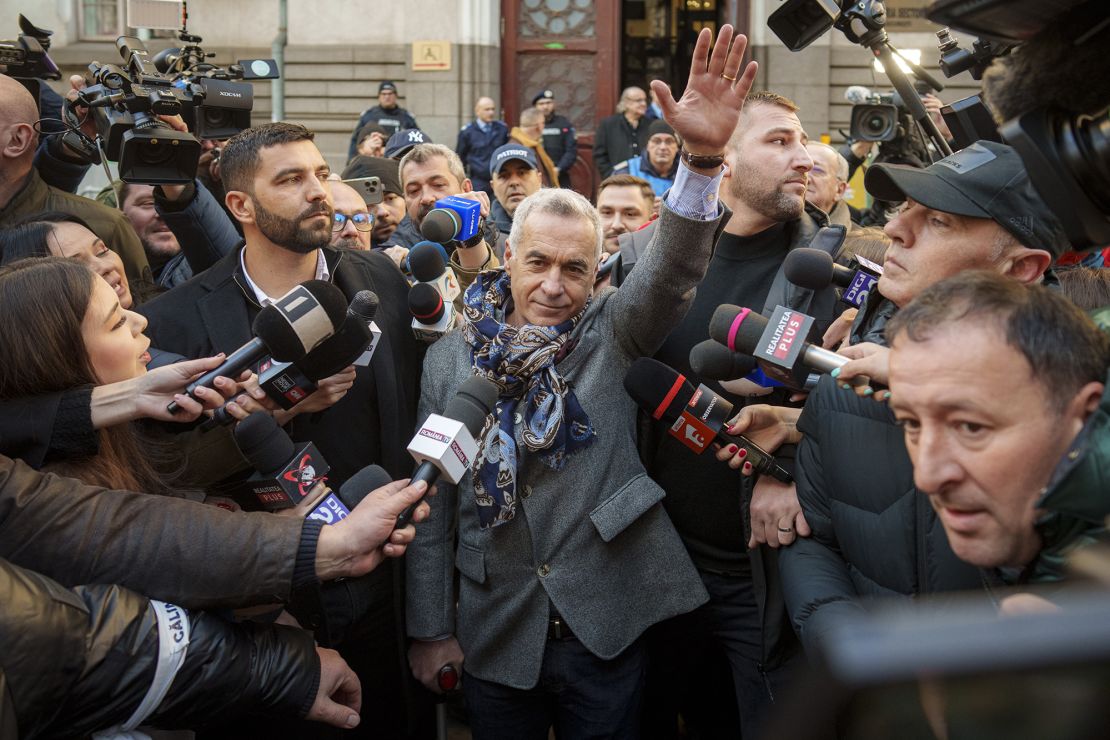
A 62-year-old former soil scientist, known for his controversial admiration of Russian President Vladimir Putin—whom he calls a “patriot”—and sympathetic views toward Romania’s World War II-era fascist leaders, unexpectedly surged to victory in November’s initial election round. However, the triumph quickly unraveled when Romania’s constitutional court nullified the results due to intelligence reports alleging Russian interference in his TikTok-driven campaign—a charge Moscow firmly denies.
Prosecutors soon intensified scrutiny, charging Georgescu with establishing a fascist group among other allegations, which he vigorously contests. His disqualification from the May election rerun by the electoral bureau triggered outrage among conservative circles in America and ignited violent protests on the streets of Bucharest.
“This has nothing to do with Russia,” Georgescu insisted during a recent Fox News interview. “It’s merely a copy-paste of accusations thrown against Donald Trump.”
Georgescu’s alignment with Trump, however, is a recent transformation. Just last summer, he openly criticized the former U.S. president and amplified conspiracy theories about Senator J.D. Vance. Recognizing a political opportunity, Georgescu soon pivoted to “ride the Trump wave,” according to Corneliu Bjola, Professor of Digital Diplomacy at the University of Oxford.
“Georgescu adopted Trump’s provocative style—characterized by conspiracy theories, misinformation, and aggressive personal attacks,” Bjola told CNN. “Trump’s perceived invulnerability, despite his involvement in the January 6 insurrection and various scandals, reinforced Georgescu’s own narrative of victimhood and emboldened him further.”
Yet, while Georgescu eagerly embraced the Trump brand, the reasons behind the Trump team’s backing of the Romanian politician remain puzzling. Reports suggest that Trump’s former special envoy, Richard Grenell, advocated for easing restrictions on controversial figures Andrew and Tristan Tate during discussions with Romanian officials at the Munich Security Conference. Grenell has denied applying pressure, and Romania’s foreign ministry insists no solicitations occurred.
Nevertheless, less than two weeks after these discussions, Romania lifted a travel ban on the Tate brothers, who face charges ranging from organized crime and human trafficking to rape and money laundering—all allegations they deny.
“Why release these individuals accused of such grave crimes?” Bjola questioned, calling it damaging for both nations. “Historically, the U.S. defended iconic figures like Aleksandr Solzhenitsyn and Lech Walesa. Now, it finds itself defending alleged sexual predators—a concerning shift.”
When asked about the Tates’ return to the United States, Trump claimed he had “no knowledge” of the situation.
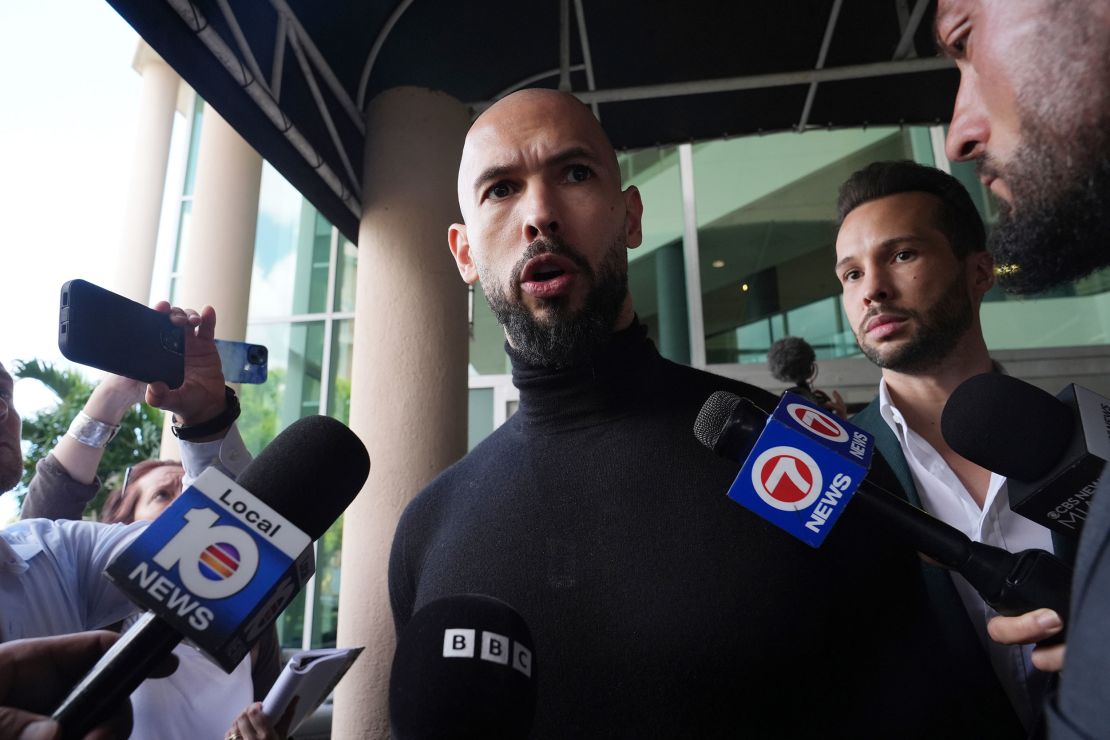
Here’s a more engaging and compelling rewrite of your content:
Trump’s Alleged Efforts to Free the Tates: A Calculated Move?
Reports that the Trump administration worked behind the scenes to free Andrew and Tristan Tate have raised eyebrows—but not necessarily surprise.
“Trump and MAGA operate on a transactional basis. If you help them, they’ll help you,” said Jamie Tahsin, a documentary filmmaker who has followed the Tate saga for years.
For Trump’s base, this move could serve as yet another rallying cry. “It’s red meat for them,” Tahsin told Family Us. “They can frame it as yet another case of the mainstream media, legal system, and governments weaponizing the law against individuals they don’t like—just like what they claim happened to Trump.”
With the Tates scheduled to return to Romania for their next court appearance later this month, speculation is mounting over whether they’ll comply—or whether Washington will intervene.
“There’s a growing belief in America that if you’re aligned with Trump, you’re protected—no matter what you’ve done,” Tahsin added.
Tensions with Brussels
Meanwhile, analysts say another key player, Georgescu, has also been useful to Trump’s team. At the Munich Security Conference, Senator J.D. Vance took aim at Romania, citing it as an example of Europe’s democratic decline.
“If a democracy can be toppled by a few hundred thousand dollars of foreign digital ads, then it wasn’t very strong to begin with,” Vance argued, referencing Romania’s controversial decision to annul its election.
According to Marietje Schaake, a fellow at Stanford University’s Cyber Policy Center, Trump allies have strategically positioned Georgescu as a poster child for everything they see as wrong with European democracy. “It fits into their broader agenda of weakening the European Union,” Schaake told Family Us.
With tensions escalating on multiple fronts, the coming weeks could prove pivotal—not just for the Tates, but for the wider geopolitical landscape.
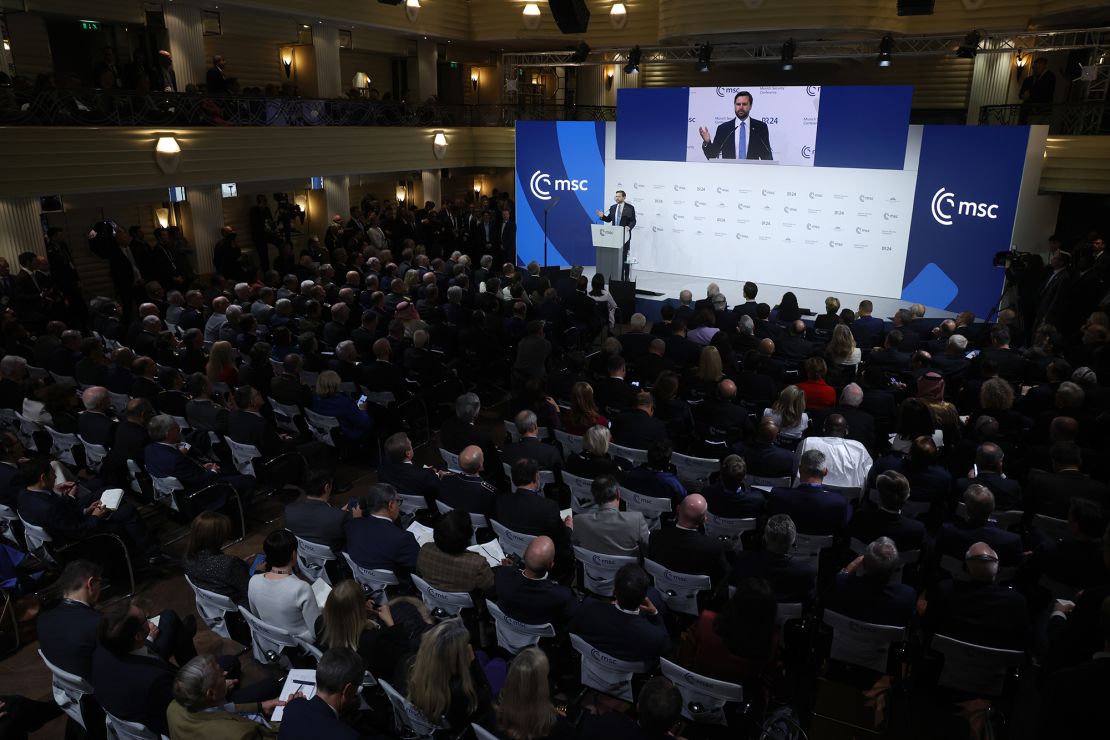
Trump’s EU Antagonism and the Georgescu Factor
During his first term, Trump showed little interest in the European Union—except when he was criticizing it. He once claimed the EU was created solely to “screw the US” and even threatened the bloc with massive tariffs. Now, with a possible return to power on the horizon, his allies are seizing on fresh controversies in Europe to push their agenda.
Euroskeptic figure Georgescu has become a hero to American conservatives who share Trump’s disdain for Brussels. In a podcast interview, conspiracy theorist Alex Jones called the annulment of Romania’s election “one of the most naked coups I’ve seen in the last 100 years—and I study history.”
Mario Nawfal, another influencer in the so-called “manosphere,” echoed the sentiment. He likened authorities blocking Georgescu from running to Trump’s own legal battles, saying, “It’s the EXACT playbook they tried against Trump.”
Beyond fueling distrust in democratic processes, Georgescu’s prominence serves another purpose for Trump’s camp, according to political analyst Popescu-Zamfir. “The more the world appears ideologically aligned with Trump’s beliefs and tactics, the more he feels reaffirmed at home,” he explained.
Calm After the Storm?
Romania is still grappling with the fallout from its postponed election, which sparked chaos both online and on the ground. Public reaction remains deeply divided—some are furious that Georgescu has been barred from running, while others are outraged that the Tate brothers may escape justice.
Caught in the crosshairs of the American right-wing media machine, Romania now finds itself at the center of a global ideological battle—one it never asked to fight.
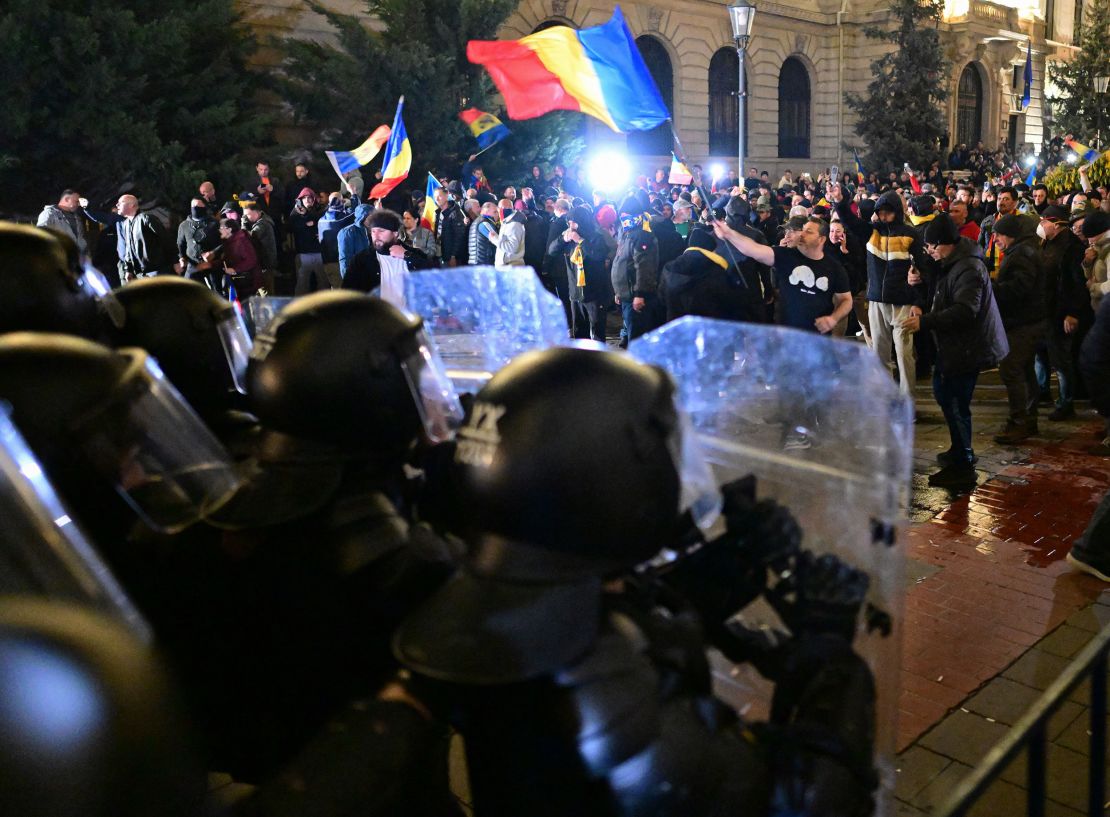
Romania’s Defiance and the Silence Fueling Conspiracies
Since the fall of Communism in 1989, Romania has often looked to Washington for guidance in staying on a pro-Western path. But according to analysts, the country is now making its own choices—perhaps for the first time in 35 years.
“For the first time since the regime change, Romania has chosen to stay on its pro-European, pro-democratic course—not because of external pressure, but despite it,” one expert noted.
Yet while Romania’s institutions may have weathered the immediate storm, questions still linger. Oxford professor Bjola warns that the government’s failure to adequately explain why Georgescu has been barred from running could become fertile ground for conspiracy theories.
“In the digital age, silence comes at a tremendous cost,” Bjola said. “If officials don’t clearly address what happened, that vacuum will be filled—by Russian operatives, domestic actors, and others with their own agendas.”
As Romania navigates this political minefield, the stakes are higher than ever—not just for its democracy, but for its place in an increasingly polarized world.
